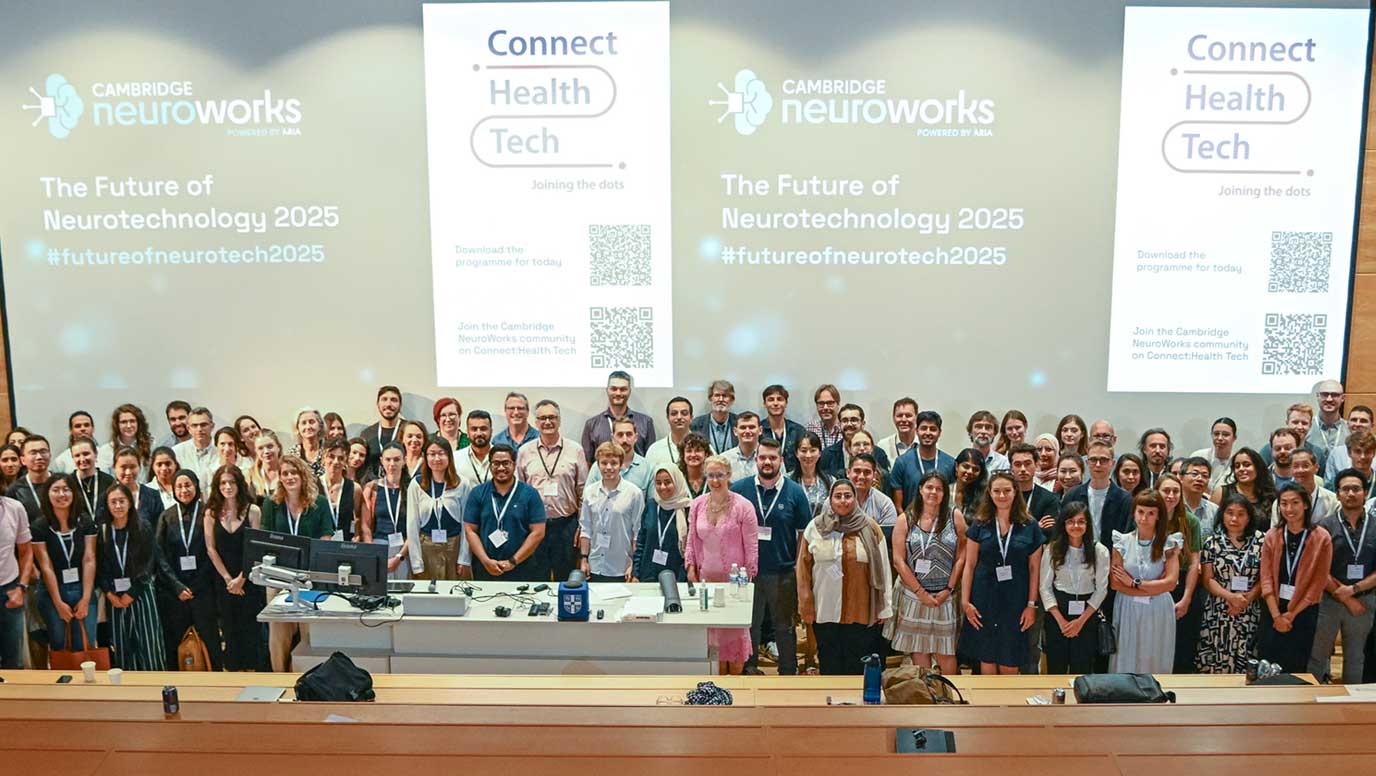Cambridge neurotechnology initiative takes wing

The Future of Neurotechnology conference, hosted by Cambridge NeuroWorks on June 30, brought together experts from the worlds of academia, healthcare, investment and industry to discuss new treatments for conditions such as depression, dementia, OCD, chronic pain, and Parkinson’s disease.
As well as engaging with innovators from different disciplines and backgrounds, the Cambridge NeuroWorks team is building a UK-wide ecosystem designed to spark new ideas and translate them into breakthroughs, with support from across Cambridge.
Dr Kristin-Anne Rutter, Executive Director, Cambridge University Health Partners who leads the Cambridge NeuroWorks programme said: “Cambridge NeuroWorks brings together researchers, clinicians, engineers, and innovators to challenge conventional thinking and tackle the most pressing problems in neuroscience. By supporting collaboration across scientific disciplines, we are creating an environment where transformative breakthroughs can be tested and scaled without fear of failure.”
Conference attendees heard from leading voices in bioengineering, clinical research and neurology, including Professor Dame Molly Stephens and Professor Tim Denison from the University of Oxford, Professor Dennis Chan from UCL and Dr Roman Rothaermel from the specialist investment fund SCI Ventures.
Dorothy Byrne, President of Murray Edwards College and former head of Channel 4 News, joined a panel discussion and shared perspectives on how scientists and journalists can work together to shape public understanding of science.
Cambridge NeuroWorks, which has multi-million-pound funding from the UK government’s new Advanced Research + Invention Agency, launched a call earlier this year and is scouring the country to find people of all backgrounds with innovative ideas for new treatments, devices and diagnostic tools designed to tackle these health problems head-on.
Jacques Carolan, Programme Director at ARIA, shared some of the emerging research in the area of ‘Scalable Neural Interfaces’ - one of several key areas that ARIA believes are most in need of innovation and ripe for breakthroughs.
Conference attendees also heard from some of the current Cambridge NeuroWorks Fellows who are developing their novel ideas including: a wearable medical device to monitor and treat stroke induced paralysis, ‘earable’ devices for monitoring balance and falls, a device to improve mobility in Parkinson’s disease, and new AI models for mental health interventions.
Dr Aga Iwasiewicz-Wabnig, Director of the Maxwell Centre at the University of Cambridge and Cambridge NeuroWorks Blue Sky Lead commented: “Our Fellowships and Proof of Concept projects serve as a platform for original thinkers who might otherwise lack access to the right kind of funding, space and mentorship needed to rigorously develop their highly ambitious, groundbreaking ideas”
John Gourd, CEO, Cambridge Network and Network Lead for Cambridge NeuroWorks added: “This event was a flagship moment for Cambridge NeuroWorks. We were thrilled to bring the neurotechnology community together and facilitate new connections that could lead to the next wave of innovation in the field. We are grateful to all the speakers, panellists, session hosts, partners, venue, and the small but dedicated team who made it possible.”

